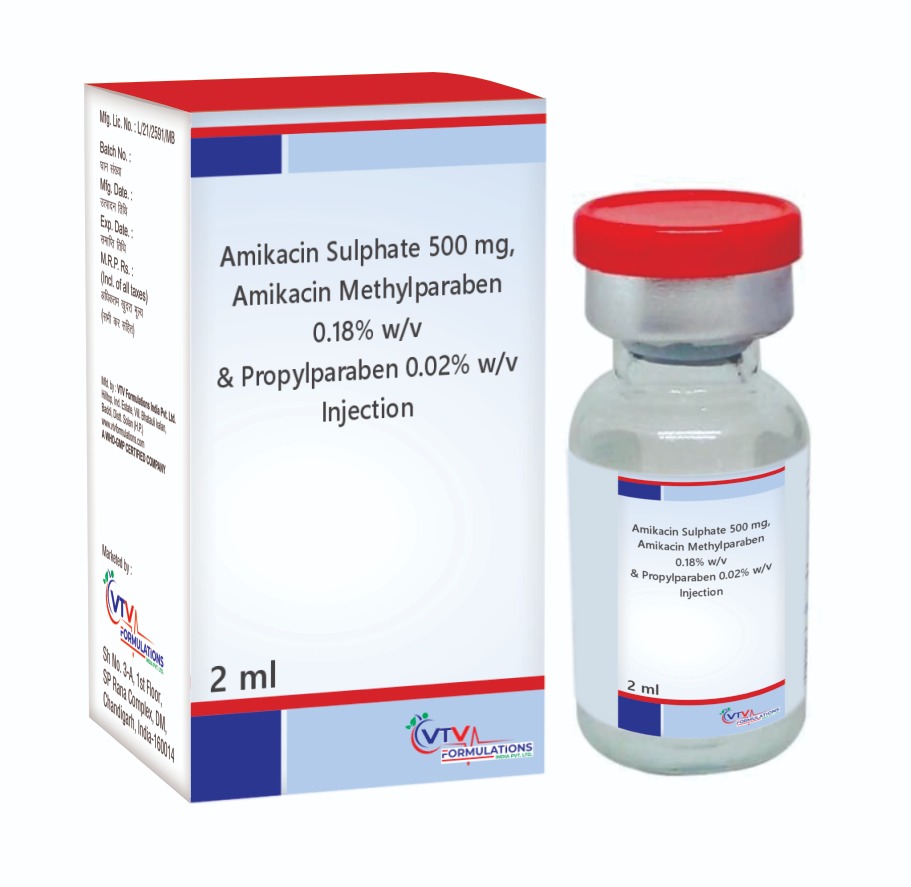What You Need to Know About Injectable Contract Manufacturing in India

In today’s hyper-competitive and fast-paced pharmaceutical market, companies face immense pressure to deliver high-quality products efficiently and at low cost. This is particularly true for injectable drugs, which require precision, sterile production environments, and strict adherence to regulatory standards. As global pharmaceutical companies look for cost-effective manufacturing solutions without compromising on quality, India has emerged as a leading destination for contract manufacturing.
India’s emergence as a global hub for pharmaceutical manufacturing is the result of strategic initiatives, skilled talent availability, and a growing ecosystem of contract manufacturing organizations (CMOs). Over the last two decades, the Indian government has actively promoted initiatives such as “Make in India,” establishment of Special Economic Zones (SEZs), and financial incentives to attract foreign investment. These measures have strengthened India’s position as one of the largest and most reliable suppliers of pharmaceutical products, including high-value injectables.
The country’s ability to provide both scale and quality has attracted global players seeking reliable partners. With a robust pool of scientists, engineers, and technicians, India excels in producing complex formulations and meeting international compliance standards. The combination of cost efficiency, skilled workforce, and modern manufacturing facilities has enabled India to become not just a production base but a strategic partner for global pharmaceutical businesses looking to optimize operations, reduce costs, and accelerate time-to-market.

The Rise of India and Key Benefits of Manufacturing in Baddi, Himachal Pradesh
India’s rise as a manufacturing hub is a result of strategic government initiatives, robust infrastructure, and a focus on pharmaceutical excellence. The country is currently the third-largest producer of pharmaceuticals by volume, supplying medicines to over 200 countries. Indian CMOs have proven expertise in producing sterile injectables, oral solids, and complex formulations, making the country a preferred destination for global contract manufacturing.
One region that stands out as a manufacturing hotspot is Baddi, Himachal Pradesh, often called the “Pharma Capital of India.” With over 300 pharmaceutical companies, including industry leaders like Cipla, Dr. Reddy’s, and Cadila, Baddi offers a unique cluster ecosystem. Manufacturing units, testing labs, logistics providers, and skilled professionals operate within close proximity, ensuring efficiency and coordination. The region benefits from tax incentives, a strong supply chain, and easy access to key markets in North India.
Key Advantages of Manufacturing in India:
- Low Labor Costs : Indian labor is highly skilled yet more cost-effective compared to Western countries or even other Asian competitors like China or Vietnam, helping companies reduce operational expenses.
- Skilled Talent Pool : India produces millions of science and engineering graduates annually. Many are trained in GMP, regulatory compliance, and advanced pharmaceutical techniques, ensuring high-quality production standards.
- Modern Infrastructure : Significant investments in industrial parks, transport networks, energy supply, and logistics support large-scale pharmaceutical production.
- Affordable Raw Materials : The local availability of active pharmaceutical ingredients (APIs) and excipients reduces procurement costs and improves supply chain efficiency.
- Advanced Technology and Facilities : Indian manufacturers have adopted state-of-the-art sterile production lines, automation tools, and precision filling equipment, enabling production of complex injectable formulations with consistent quality.
- Regulatory Expertise : Indian CMOs are experienced in meeting global regulatory requirements, including WHO-GMP, US FDA, EU GMP, and MHRA guidelines, facilitating smoother international market access.
- Scalability : From pilot batches to large-scale production, Indian manufacturers can quickly scale operations to meet fluctuating market demands without compromising quality.
- End-to-End Solutions : Many CMOs provide R&D support, formulation development, packaging, labeling, and distribution services, giving pharmaceutical companies a comprehensive manufacturing partner.
Challenges of Contract Manufacturing in India and Mitigation Strategies
While India offers tremendous advantages for contract manufacturing, companies must be aware of challenges and adopt strategies to mitigate risks. Understanding these potential pitfalls ensures smoother operations and long-term success.
Common Challenges in India:
- Cultural and Communication Barriers : Differences in language, business practices, and communication styles can lead to misunderstandings between international companies and Indian CMOs.
- Infrastructure Limitations : Despite improvements, some regions still face transportation delays, inconsistent power supply, and limited internet connectivity, which can affect production timelines.
- Quality Assurance Variability : Not all manufacturers maintain the same standards. Choosing the wrong partner may lead to non-compliance, recalls, or regulatory violations.
- Bureaucratic Delays : Licensing procedures, inspections, and customs clearance can be slower than expected, particularly for first-time collaborations.
- Supply Chain Complexity : Managing APIs, excipients, packaging materials, and logistics from multiple vendors requires careful oversight to avoid disruptions.
Mitigation Strategies :
- Partner with Experienced CMOs : Select manufacturers with proven track records, certifications, and a reputation for quality and reliability.
- Use Local Consultants : Hiring a local agent or consultant helps navigate bureaucratic processes, ensuring compliance and timely approvals.
- Regular Audits : Conduct periodic inspections of manufacturing sites to verify adherence to GMP and quality standards.
- Legal Contracts : Draft comprehensive agreements that define roles, timelines, intellectual property rights, confidentiality, and penalties for non-compliance.
- Training and Alignment : Ensure that both teams clearly understand product requirements, production standards, and quality expectations.
Regulatory Tips for Injectable Manufacturing :
- Ensure the manufacturer operates in ISO-classified cleanrooms (ISO 5 to ISO 8) for sterile production.
- Verify that aseptic filling or terminal sterilization processes are validated and monitored.
- Confirm proper documentation for batch release, quality testing, and stability studies.
- Regularly update with evolving regulations in major markets like the US, EU, and Japan.
How to Succeed in Outsourcing Injectable Production to India and Conclusion
Successful outsourcing of injectable production in India goes beyond selecting the cheapest manufacturer. It requires building strong partnerships, understanding local business culture, and implementing a well-defined strategy.
Pharmaceutical companies should be flexible with timelines, material sourcing, and regulatory changes while fostering trust and open communication with their Indian partners. Accurate demand forecasting, thorough planning, and strategic negotiation help ensure smooth operations and cost efficiency. Specializing in a particular therapeutic category, such as oncology or antibiotics, allows businesses to leverage the manufacturer’s expertise for superior outcomes.
Best Practices for Success:
- Be Flexible : Build contingency plans to accommodate changes in regulations, supply chain, or production schedules.
- Strong Relationships : Trust and transparent communication with Indian partners are key to long-term success.
- Cultural Understanding : Awareness of Indian business hierarchy, decision-making processes, and negotiation styles prevents misunderstandings.
- Thorough Planning : Forecast demand accurately and communicate timelines early to avoid delays or production bottlenecks.
- Value-Based Negotiation : Focus on overall value, including quality, compliance, flexibility, and added services, not just price.
- Choose the Right Products : Match your injectables with the manufacturer’s strengths—high-tech biologics may require specialized facilities.
- Local Support : Engage a local consultant or legal advisor to handle regulatory and logistical complexities.
- Stay Updated : Keep track of global regulatory trends, sterile manufacturing advancements, and market dynamics.
Manufacturing Workflow for Injectable Contract Manufacturing :
- Product Transfer : Client provides technical documentation, formulation, stability data, and manufacturing protocols.
- Regulatory Review : Indian CMO ensures compliance with WHO-GMP, FDA, and EU standards.
- Pilot Production : Initial batches are manufactured to validate process consistency and quality.
- Full-Scale Production : Upon validation, large-scale manufacturing begins.
- Quality Control : Each batch undergoes sterility, particle count, and endotoxin testing before release.
Benefits of Outsourcing Injectable Manufacturing to India :
- Speed to Market : Experienced CMOs streamline regulatory approval and production timelines.
- Cost Reduction : Lower labor, raw material, and infrastructure costs improve profitability.
- Scalability : Ability to produce from small batches to millions of units efficiently.
- Regulatory Compliance : Adherence to global standards simplifies international exports.
- Focus on Core Business : Outsourcing allows companies to concentrate on branding, marketing, and distribution.
Case Example :
A mid-sized European pharmaceutical firm outsourced oncology injectable production to a Baddi-based manufacturer. They reduced costs by 40%, cut delivery timelines by 25%, and obtained faster regulatory approvals without investing in new infrastructure. This illustrates how India’s ecosystem enables companies to scale efficiently while maintaining high-quality standards.
Conclusion :
India has established itself as a global hub for contract manufacturing of injectables, offering cost efficiency, skilled talent, modern infrastructure, and regulatory compliance. Regions like Baddi, Himachal Pradesh, provide a comprehensive ecosystem for pharmaceutical companies, from sterile production and quality assurance to logistics and supply chain management. While challenges exist, proper planning, strategic partnerships, and adherence to best practices allow businesses to leverage India’s advantages successfully. Outsourcing to experienced CMOs ensures high-quality, globally compliant injectable products while enabling companies to focus on growth, innovation, and market expansion.
Explore Related Blogs
Stay informed with our curated selection of similar blogs, offering expert perspectives on pharmaceutical trends, regulatory updates, and product innovations.
These articles are designed to help healthcare professionals, partners, and businesses stay ahead in an ever-evolving industry. Explore more to deepen your knowledge and make informed decisions.